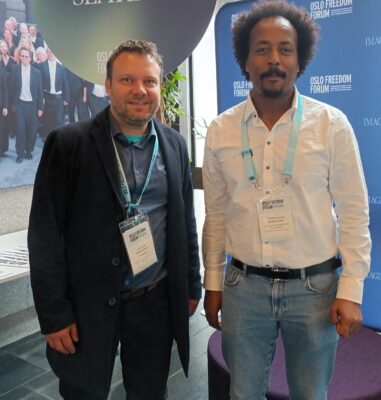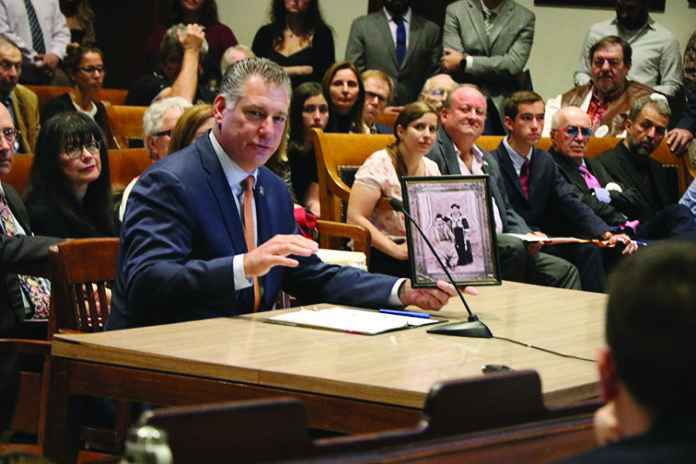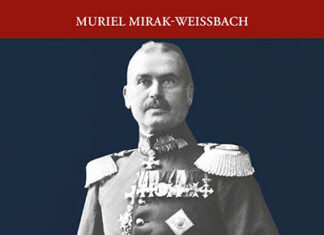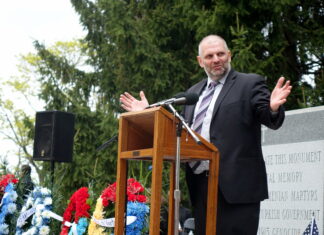BOSTON — Scholars, politicians, historians and concerned citizens testified on October 7 at the State House at a public hearing before the Massachusetts Joint Committee on Education for a bill that if passed by the state legislature, would mandate the teaching of the Holocaust, the Armenian Genocide and several other genocides in the state’s public schools.
Among those testifying and answering questions were Dikran Kaligian, a member of the Armenian National Committee of Eastern Massachusetts, and Peter Koutoujian, sheriff of Middlesex County.
Kaligian said the hearing went quite well. Many of those testifying were Jewish survivors of the Holocaust as well as several Ukrainians, whose holocaust, the Holodomor, killed millions through an intentional infliction of famine.
Kaligian said that some Turkish opponents of the bill were present but that they had taken a new tack; instead of angry outbursts, several complained that the teaching of the Armenian Genocide would have a traumatic effect on their children.
H.566 and S. 327, titled “An Act concerning genocide education,” was filed by State Sen. Michael Rodrigues, D-Westport, and state Rep. Jeffrey Roy, D-Franklin. The bill has 94 co-sponsors from both sides of the aisle.









